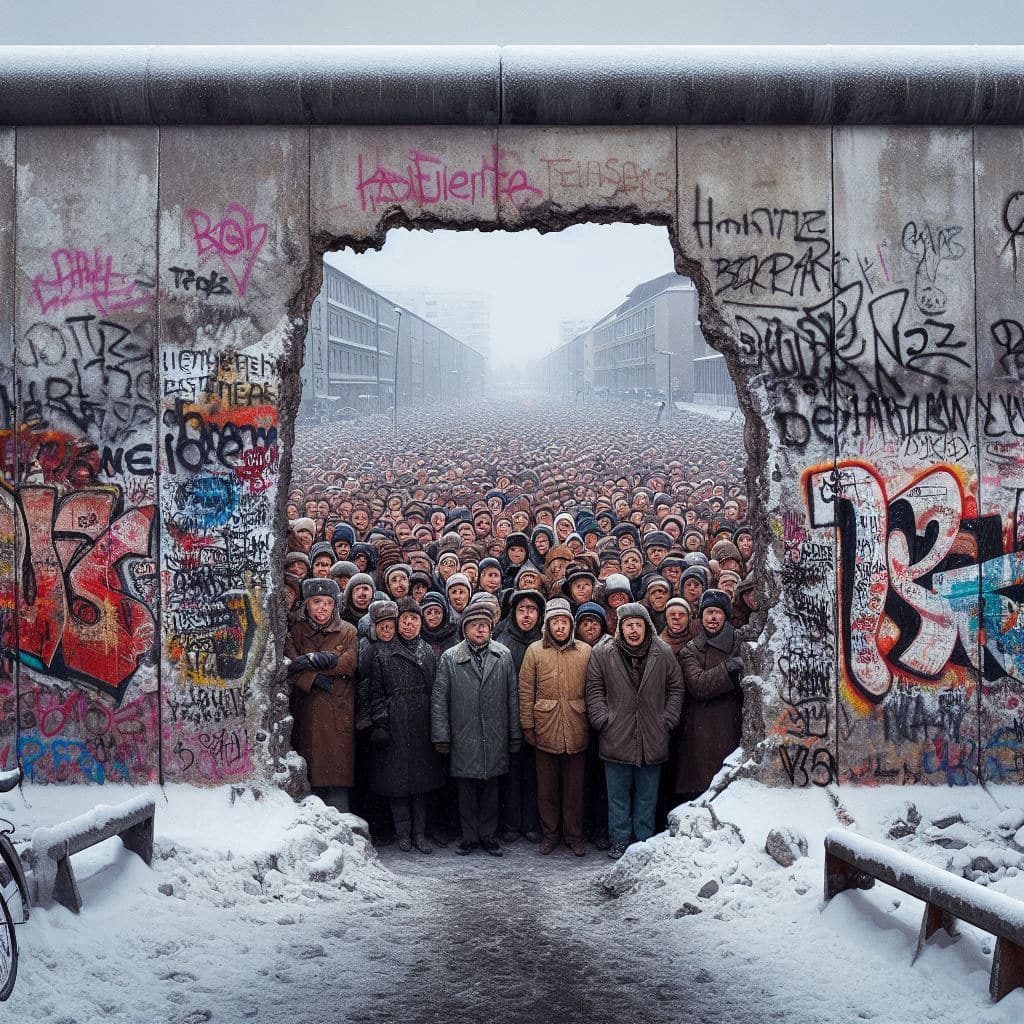Brexit and Bremain: the devil and the deep blue sea
SUGGESTED



Except, the image did not actually present such a case. If anything, it made a case for the Schengen agreement, rather than the EU as such. Countries can be part of Schengen without being members of the EU, and members of the EU without being part of Schengen. So the people who compiled that image could just as well have chosen the Swiss-German border, which you can also easily cross without noticing it. (As I did once, inadvertently crossing from Konstanz on the German side into Kreuzlingen on the Swiss side).
In the current referendum debate, this confusion between the EU proper, and institutional arrangements that overlap with the EU without being the EU, has been the rule, not the exception. It is a distinction which may seem pedantic, but which matters in practice. ‘Inners’ and ‘outers’ frequently talk about the EU (or worse, “Europe”,) when they really mean the European Economic Area (EEA), or the European Free Trade Area (EFTA), or Schengen, or the Eurozone, or just international cooperation in general. As a result, the EU receives a great deal of praise, and a great deal of blame, for things which are not actually the result of the EU as such.
‘Three million jobs would be lost if Britain left the EU!’, claim some Bremainers. No, they wouldn’t. Three million jobs might be lost if continental Europe sank into the ocean like Atlantis. It is the single market on which those jobs depend, not the EU; that is, they depend on economic integration, not political union. ‘We would regain control over [read: close] our borders!’, claim some Brexiteers. Wrong again. Neither Norway nor Iceland nor Switzerland have, in this sense, ‘control’ over their borders. A post-Brexit UK could, of course, opt for a more distant relationship than those three, but if that is your aim, you cannot simultaneously claim that there would be no economic cost.
If you are showing signs of ‘EU referendum fatigue’ for such reasons, the recent IEA monograph ‘Breaking up is hard to do’ may offer you some respite. The purpose of the monograph is easily explained. Each author has been assigned a different policy area; and they have been asked to approach that area from first principles, irrespective of current political battle lines, and irrespective of what is currently deemed politically possible. (After all, what could be more boring than the ‘politically possible’?) Imagine we could start the whole thing from scratch again. Are there any government functions within your policy area that you would want to see delegated to a supranational level at all, and if so, what would that ‘supranational level’ look like, institutionally? How does your ideal arrangement compare to the UK-EU relationship as it currently stands, and how would you move from the latter to the former?
My colleague Richard Wellings and I looked at transport and transport-related environmental issues. Perhaps predictably, we thought that a lot of decisions in this area should be taken neither in Brussels nor in Westminster, but at the level of the individual household and the individual firm. Insofar as government action might be justified, we found that wherever current international arrangements make some sense, EU membership is not essential, and wherever EU membership is essential, current arrangements don’t make any sense.
We agree with the aim of creating a single European airspace. The fragmentation of air traffic management along national boundaries is wholly inappropriate, and unnecessarily hampers productivity in the aviation industry in various ways. However, recent steps in this direction already go well beyond the EU. Norway, Iceland and Switzerland are on board, and so is Bosnia-Herzegovina. In this respect, Brexit would have no impact either way.
We can also see a case for cooperation in the creation of cross-border transport network corridors, but again, EU membership is quite irrelevant for this. Norway and Switzerland are already fully signed up, and there is no reason why a post-Brexit UK should not be.
Neither of us is a fan of the green ‘decarbonisation’ agenda in general, nor of the EU’s Emissions Trading Scheme (ETS) in particular, but we also see the ETS as less damaging than the other climate policies currently pursued. So if there has to be climate mitigation policy, let it be the ETS, and ideally nothing else.
The ETS, however, although still commonly referred to as ‘EU-ETS’, has also begun to transcend the EU. Norway, Iceland and Liechtenstein take part in it, and over the coming years, it will be joined with Switzerland’s and even Australia’s trading scheme. So again, Brexit would neither be a change for the better nor for the worse.
EU climate policy, unfortunately, goes well beyond the ETS. The EU also imposes specific maximum emission targets in different industries, especially the car industry, alongside minimum targets for renewable energy. This approach is extremely prescriptive and dirigiste, it imposes enormous economic costs, and it generates no additional environmental benefits beyond what is already achieved by the ETS. A post-Brexit UK would no longer be bound by this anti-economic agenda.
Unfortunately, the fact that emission and renewable energy targets are wasteful and pointless does not mean that a post-Brexit British government would abandon them. It is not as if Brussels had been pushing punitive measures on reluctant British politicians; rather, British politicians cannot seem to get enough of those measures, and gold-plate them at every step. In British politics, environmental measures have long become ‘virtue-signalling policies’ which governments pursue (and voters approve of) not in order to solve an actual environmental problem, but to signal their green credentials. Combined with the popular fallacy that the cost of environmental policies is borne by ‘the industry’ rather than consumers, this makes it likely that some of the EU’s worst policies would survive Brexit unscathed.
Further, EU-subsidised infrastructure projects have often offered poor value for money. Post-Brexit, the British taxpayers would no longer have to subsidise them, which can only be an improvement. However, the penchant of successive British governments for white elephant grands projets does not inspire much confidence in domestic equivalents either. The right level for most infrastructure projects is neither Brussels nor Westminster. It is the local level under conditions of far-reaching fiscal decentralisation, and the private sector under conditions of far-reaching planning liberalisation.
In short, if you are looking for a cheerful read, you’d better skip Richard’s and my chapter. In environmental and transport policy, we are not expecting much good from either Brexit or Bremain, or from a renegotiation. It is a choice between a statist agenda imposed from Brussels, a statist agenda imposed from Westminster, and a statist agenda imposed by both. Thrilled? Us neither.
Read the monograph ‘Breaking Up is Hard to Do’ here.
4 thoughts on “Brexit and Bremain: the devil and the deep blue sea”
Comments are closed.





Kris – The pro-Brexit argument is not that we would necessarily abandon harmful policies, it is that we could abandon them.
And that’s why I ultimately end up in the Out camp. I just can’t muster the enthusiasm of those who believe that once out, we’d rid ourselves from all the bad stuff imposed by Brussels. There is SOME chance that we will eventually get rid of SOME of it.
Kris – I agree with you. However, there would be some immediate gains (pro-remainers will argue some immediate losses too). I suspect that we would pretty quickly abandon most import tariffs and we would abandon the Common Fisheries Policy.
The best argument for staying in the EU is that some regulations from the EU are better than the UK would have come up with if left to itself. Examples could be worker legislation, beach quality, and non-subsidy by the State in failing private companies.
If EU politicians are better than our own, then logically it would be better to have no influence at all, as our 1 commissioner and 8%(?) influence is bring the average down.
It’s the NOR model for me – getting back control of farm policy, fisheries, home affairs and justice. And hopefully having no farm subsidies, but that’s wishful thinking. But with the government spending around 1.09 for every 1.00 in income Osborne will look at this again and likely reduce the overall level. Or abolish in England and devolve it for SCO, WAL and NI. So many sweet possibilities exist. I can’t imagine farm policy being any worse than now.
The mainstream brexiteers are a pretty obnoxious bunch though – for them, it’s about immigration, not the compulsory transfer of public funds to people who are already well off.